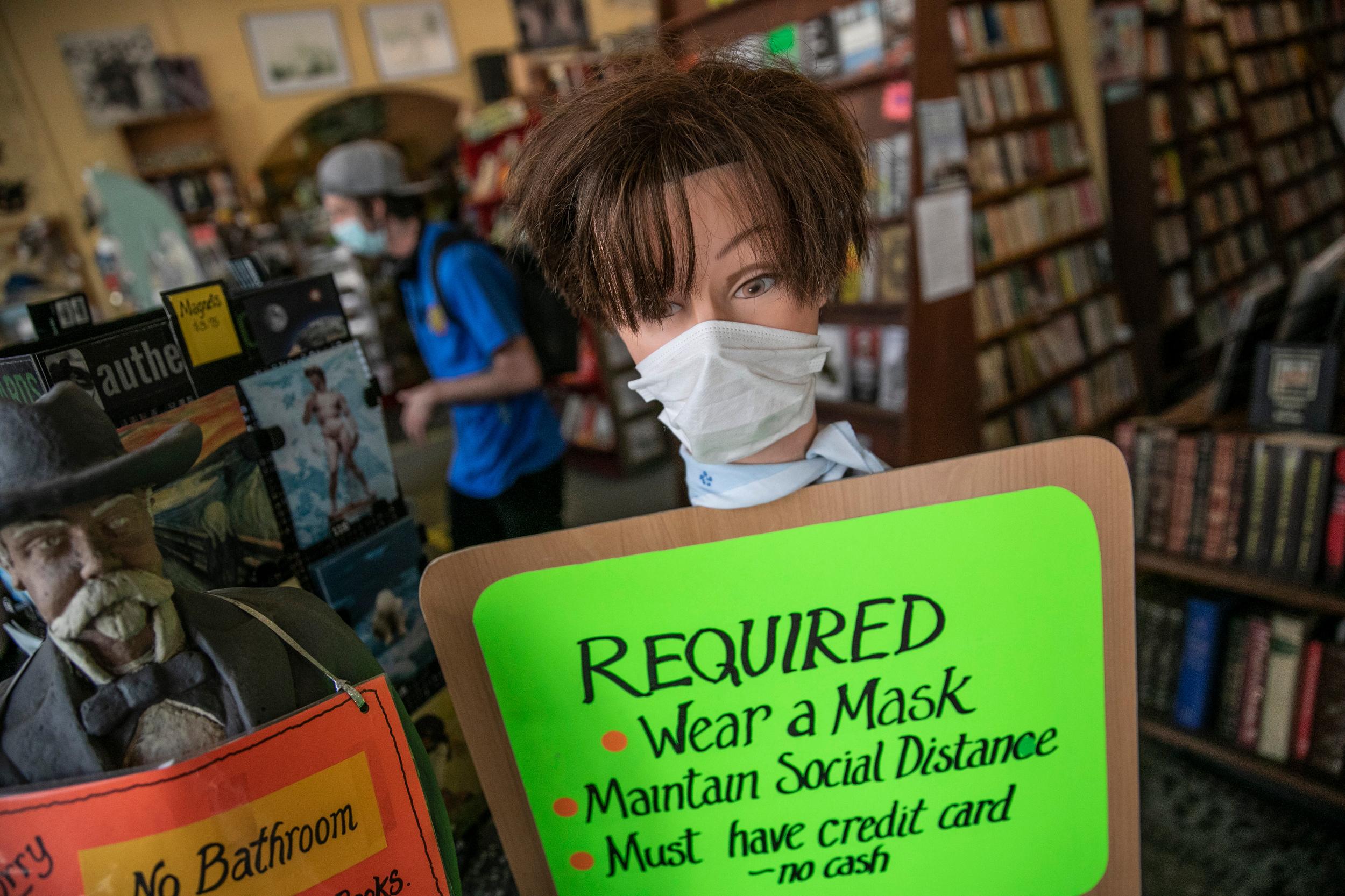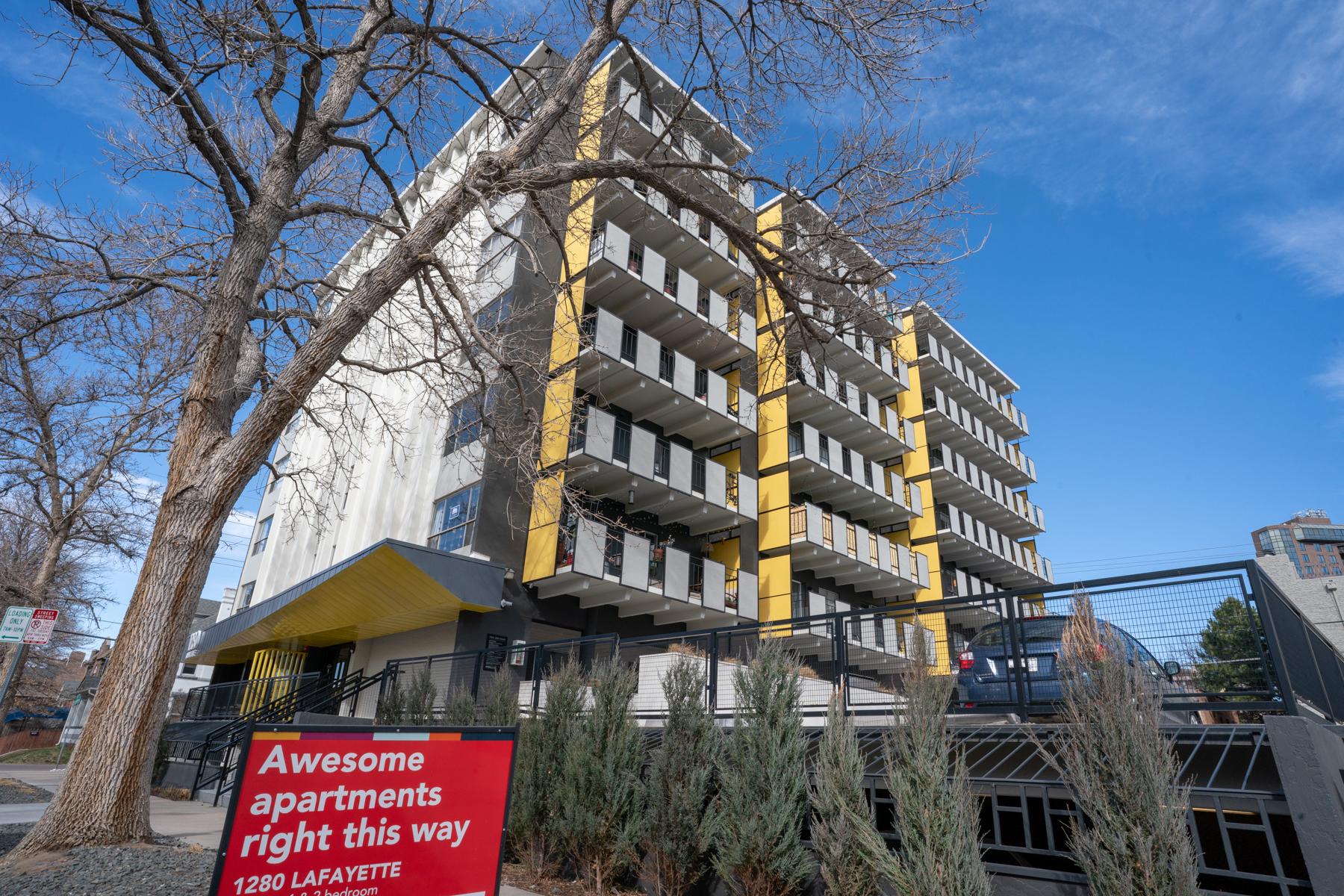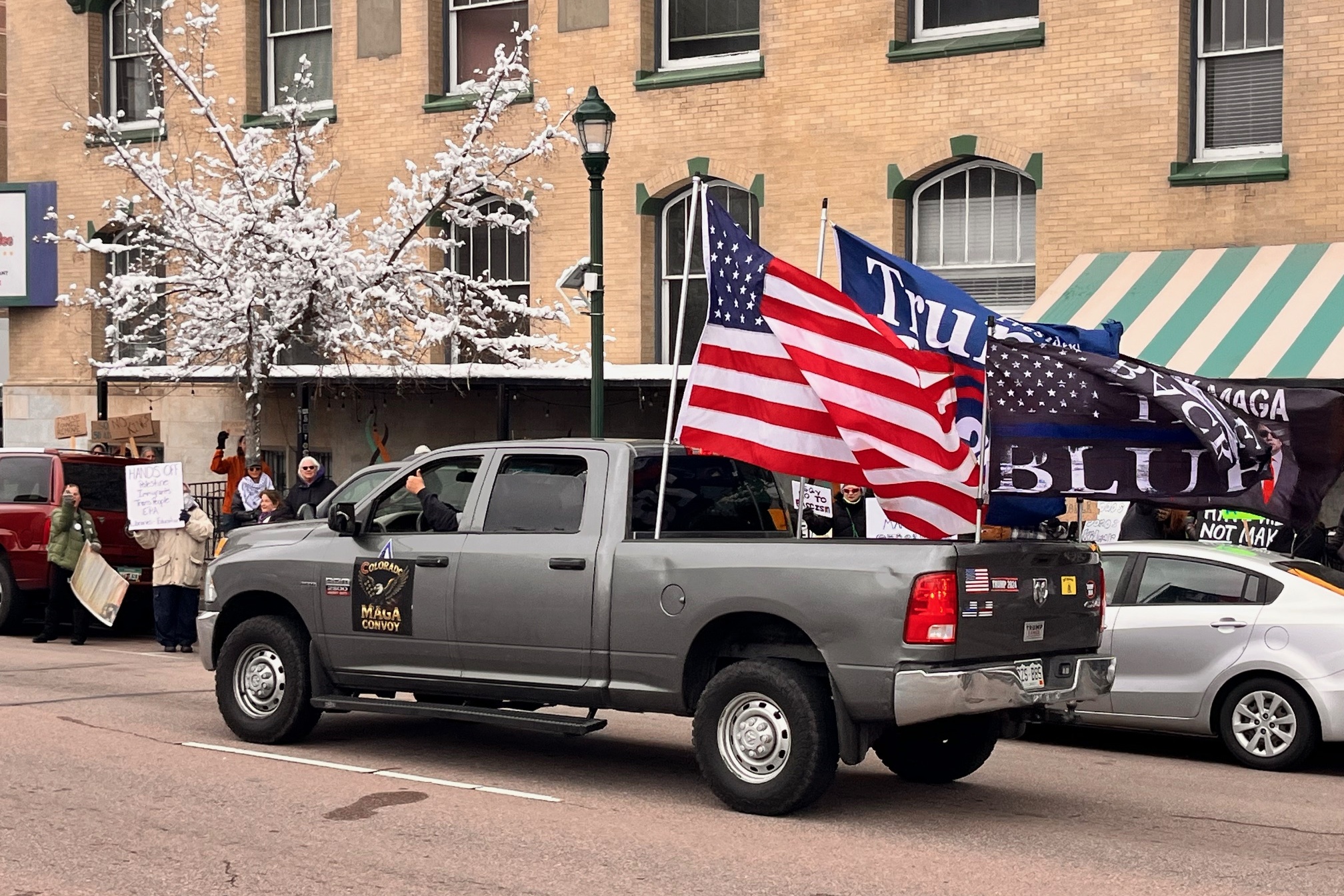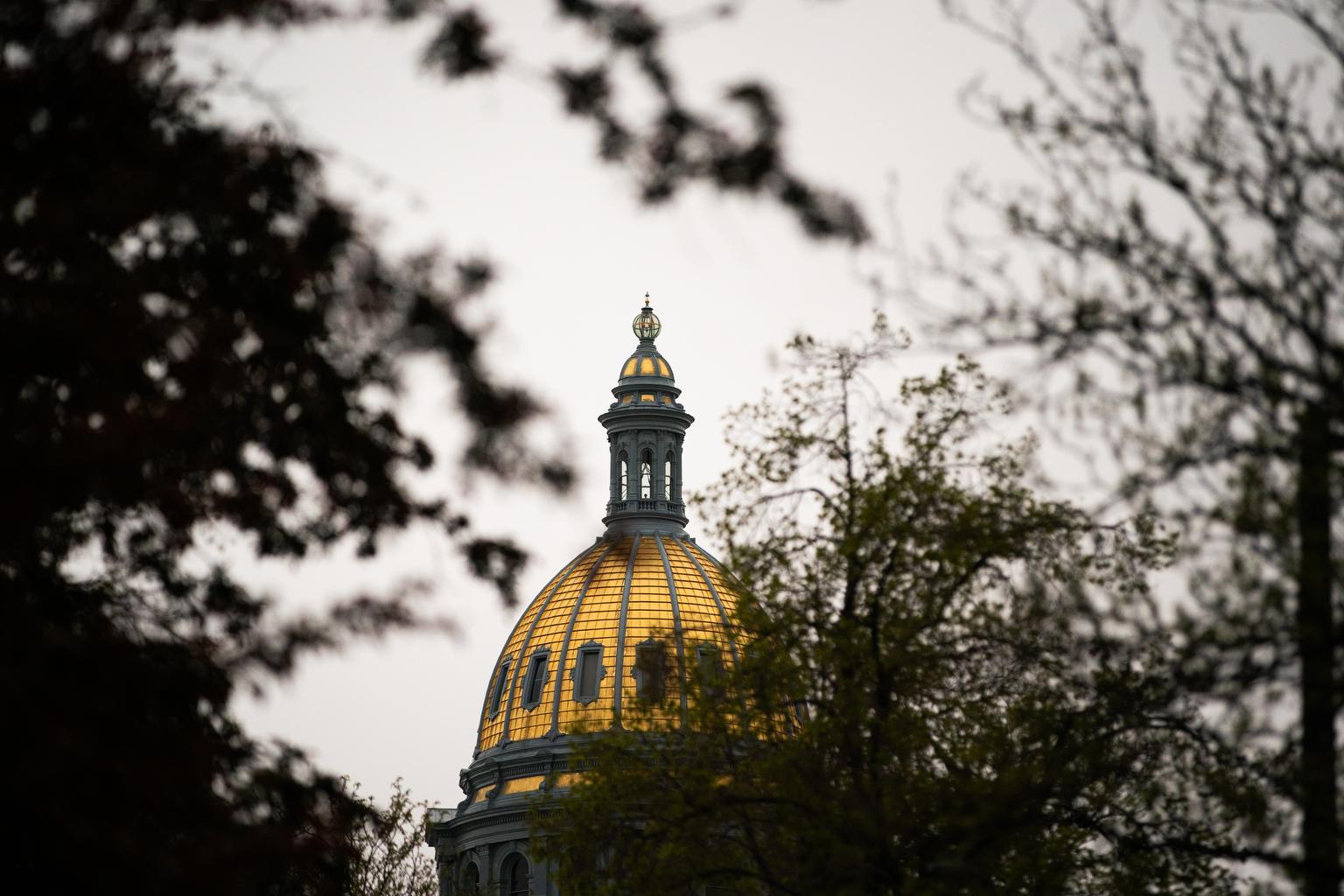
A collection of local golf courses, liquor stores and eateries had something in common over the last year: They stopped accepting cash.
Instead, customers at all these businesses have been asked to pay by card or mobile device throughout the pandemic. The no-cash policies were described as public health precautions, but two state lawmakers are worried that they’ll become permanent changes.
Rep. Alex Valdez said that he got a wave of concerned calls early in the pandemic from people who don’t have credit and debit cards.
“And now we’re being told, at a place where we obtain our basics, that we can’t use our money,” he recalled hearing. One constituent told him that she had to walk an extra 14 blocks to buy milk after her corner store stopped accepting cash, said Valdez, a Democrat.
More recently, Valdez decided to try himself. He told a restaurant that he only had cash to pay the bill, and found himself “a little bit ridiculed” for wanting to pay with legal tender, until he finally produced a card.
“And we need to be conscious that when we put a requirement to have a card … what we’re really saying is you have to be bankable in order to purchase here,” he added.
Valdez and Sen. Robert Rodriguez introduced a bill in the state legislature that would require businesses to accept cash payments. It’s titled, appropriately enough, “Retail Businesses Must Accept Cash.”
There would be an exception for vendors that rely on machines rather than cashiers to accept payment. Violators could be charged with a petty offense.
The early days of the pandemic led many more businesses to experiment with no-cash or low-cash policies, figuring that they could reduce the amount of contact between customers and staff. Among them were city of Denver golf courses, the MAD Greens fast-casual restaurant and numerous other businesses.
It’s still unclear whether cash actually carries a significant COVID-19 risk. A Bank of England study found that shopping baskets, PIN keypads and touchscreens were more likely to transmit the virus.
Businesses, however, have their own reasons for going cashless, and some were already experimenting with no-cash policies. Cash transactions can slow down the line, and companies have to pay for extra equipment and services to handle the bills.
And despite common perception and that stuff about “legal tender for all debts public and private,” there is no federal requirement that businesses accept cash.
That’s most commonly a problem for lower-income and unemployed people, who are least likely to have a bank county. Nationwide, about 7.1 million U.S. households didn’t have a checking or savings account in 2019, according to the FDIC. That can grow worse during a downturn, when some people move to cash to avoid garnishments on their bank accounts, Valdez said.
Prepaid cards are an option, but they can come with a variety of fees. Others object to the privacy implications of being forced to use a card, including the American Civil Liberties Union.
Several other cities and states have passed similar laws banning cashless policies, including Massachusetts, Rhode Island and New Jersey, according to the National Law Review, and the idea’s grown more popular during the pandemic
The Colorado bill passed a committee hearing earlier this month. Only one person, an economics student at the University of Colorado-Boulder, spoke against the bill, saying that cash had many benefits but that businesses should be trusted to make the best choice.
“Those retailers should be able to make their own decision over which payment method to accept,” said Zach Robertson, who had analyzed the bill for a class assignment.
“The day will come when cash is no longer an effective payment method, and when that happens, government should not stand in the way of businesses choosing the best method for them,” Robertson said.
Tourism organizations also have lobbied against the bill, according to public records. The proposal passed the business committee hearing in a 9-4 vote, gaining the support of all the Democrats and one Republican on the panel.
Meanwhile, some organizations are rolling back their cashless policies on their own. The city of Denver expects to begin accepting cash again at its golf courses when the pandemic subsides. MAD Greens planned to begin accepting cash in Colorado again on March 29, with marketing director Peggy Littleton citing “the re-opening of our economy and customer sentiment around cash.”









